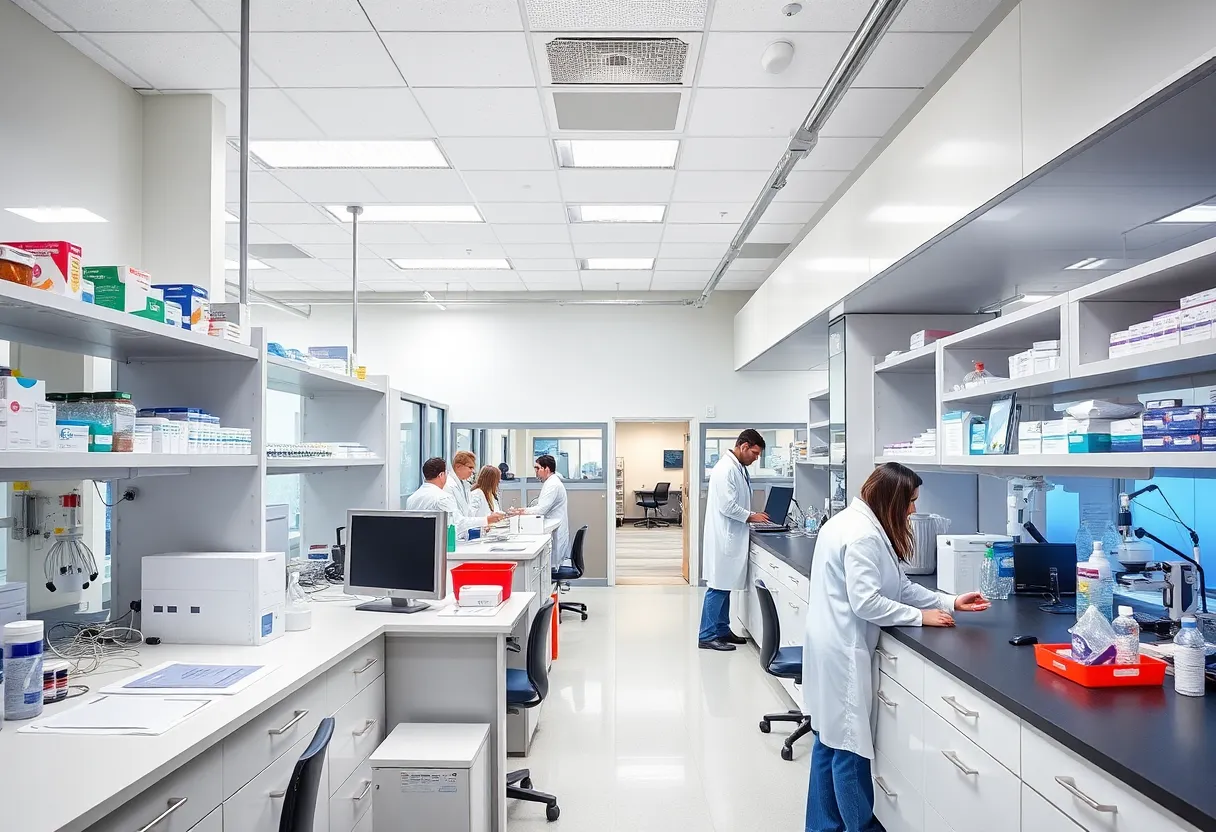Buffalo, October 5, 2025
A partnership between Roswell Park Comprehensive Cancer Center and the University at Buffalo has announced the creation of a $10 million biotech research hub focusing on immunotherapy. It aims to advance cancer treatment and foster innovation in the field. The hub will also provide specialized training for 50 PhD students annually, contributing to local economic growth and enhancing Buffalo’s position in medical innovation.
Buffalo
A groundbreaking partnership between Roswell Park Comprehensive Cancer Center and the University at Buffalo has resulted in the launch of a $10 million biotech research hub focused on advancing immunotherapy. This initiative, aimed at transforming cancer treatment research, was announced recently and positions Buffalo as a key player in medical innovation.
The hub will prioritize immunotherapy, a treatment approach that harnesses the body’s immune system to fight cancer. Initial efforts will involve collaborative projects between researchers from both institutions, building on their existing expertise in oncology and biomedical sciences. The facility is designed to foster innovation through shared resources, including state-of-the-art labs equipped for cellular and molecular research.
Training programs form a core component of the hub’s mission. Each year, 50 PhD students will receive specialized training in biotech and immunotherapy techniques. This structured program will include hands-on research opportunities, interdisciplinary coursework, and mentorship from leading scientists. The goal is to develop a new generation of researchers equipped to tackle complex challenges in cancer care.
Funding and Economic Impact
The $10 million investment covers construction, equipment, and operational startup costs. Beyond the initial funding, the hub is expected to attract substantial national grants from federal agencies and private foundations. These additional resources could amplify the project’s reach, potentially leading to breakthroughs that benefit patients nationwide.
Locally, the initiative promises economic growth. By creating jobs for scientists, technicians, and support staff, the hub will contribute to Buffalo’s biotech sector. The training of 50 PhD students annually could also retain talent in the region, reducing brain drain and bolstering the local workforce. Over time, this could stimulate related industries, such as pharmaceuticals and medical device manufacturing, enhancing Buffalo’s reputation as a hub for health sciences.
Strategic Positioning for Buffalo
Buffalo’s selection as the home for this research hub leverages its unique strengths. Roswell Park Comprehensive Cancer Center, one of the nation’s oldest cancer research institutions, brings decades of clinical trial experience. The University at Buffalo, part of the SUNY system, offers a robust academic environment with access to diverse talent pools. Together, they aim to address unmet needs in immunotherapy, where current therapies show promise but require further refinement for broader application.
Immunotherapy has revolutionized cancer treatment in recent years, with successes in areas like melanoma and lung cancer. However, challenges remain, including resistance in some patients and high costs. The new hub will focus on these issues, exploring ways to make treatments more effective and accessible. Collaborative research could lead to new drug discoveries or optimized protocols, ultimately improving survival rates and quality of life for cancer patients.
Long-Term Vision and Community Benefits
Looking ahead, the partnership envisions expanding the hub’s scope to include community outreach. Educational programs for local students and healthcare professionals will raise awareness of biotech careers and immunotherapy advancements. This could inspire underrepresented groups to pursue STEM fields, diversifying the research pipeline.
From a public health perspective, the hub’s work holds potential for regional impact. Western New York has a higher-than-average cancer incidence, partly due to environmental factors and an aging population. By advancing immunotherapy locally, the initiative could accelerate access to cutting-edge care for residents, reducing the need for travel to distant treatment centers.
The launch aligns with broader trends in medical research, where interdisciplinary hubs are increasingly vital for innovation. Similar facilities elsewhere have accelerated discoveries, and Buffalo’s entry into this arena underscores its evolving role in national health efforts. As the hub ramps up operations, ongoing evaluations will ensure it meets its goals of scientific advancement and community service.
In summary, this $10 million venture between Roswell Park and the University at Buffalo marks a significant step forward for Buffalo’s biotech landscape. With a focus on immunotherapy, PhD training, and national funding pursuits, it sets the stage for meaningful contributions to cancer research and economic development.
FAQ
What is the focus of the new biotech research hub in Buffalo?
How much funding is allocated to the biotech research hub?
Which institutions are partnering for this project?
How many PhD students will the hub train each year?
What broader impacts does the hub aim to achieve?
Key Features Chart
| Feature | Description |
|---|---|
| Funding Amount | $10 million investment for construction, equipment, and operations |
| Primary Focus | Advancements in immunotherapy for cancer treatment |
| Partnering Institutions | Roswell Park Comprehensive Cancer Center and University at Buffalo |
| Training Capacity | 50 PhD students annually in biotech and immunotherapy |
| Expected Outcomes | Attract national funding; position Buffalo as leader in medical innovation; create jobs and retain talent |


